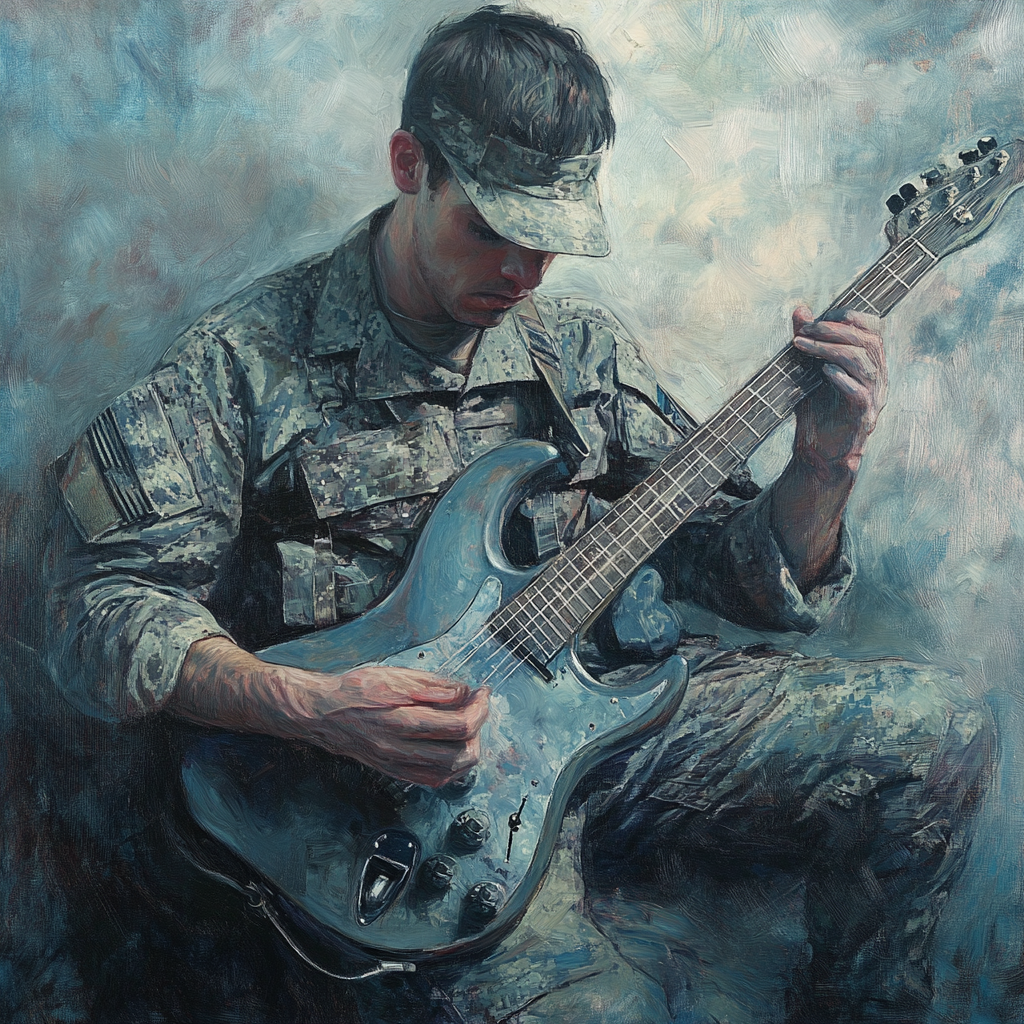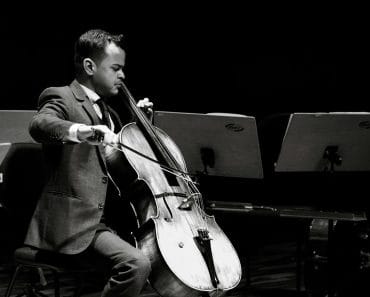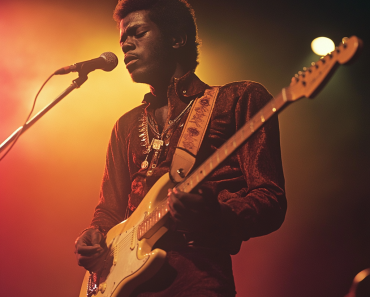Table of Contents
11 Famous Musicians Who Served in the Military
Throughout history, many famous musicians have served in the military, bringing their unique experiences and perspectives to their music. This article explores the lives of notable artists who enlisted, the impact of their military service on their music careers, and how their experiences shaped their artistic expressions. From jazz legends to hip-hop icons, the stories of these musicians reveal a fascinating intersection between military life and the world of music.

Who Are A Few Famous Musicians Who Served in the Military?
1. John Coltrane: The Jazz Revolutionary Forged in Navy Blues
John Coltrane’s time in the Navy during the Korean War was a pivotal moment in his life and career. Serving in the Navy not only exposed him to different musical styles but also provided him with a sense of discipline that would later define his work ethic as a musician. Coltrane’s experiences while stationed at Schofield Barracks in Hawaii allowed him to connect with other musicians, further enriching his musical journey. The camaraderie and shared experiences of military life played a significant role in shaping his artistic vision and commitment to his craft.
After his military service, Coltrane’s music underwent a remarkable evolution. He began to experiment with new sounds and techniques, pushing the boundaries of jazz. His military experiences instilled in him a sense of purpose and urgency, which is evident in his groundbreaking works such as “A Love Supreme.” The themes of struggle and transcendence found in his music can be traced back to his time in the Navy, where he faced the realities of war and human experience. Coltrane’s ability to channel his military experiences into his music allowed him to create a lasting legacy that continues to inspire musicians today.
2. Ice-T: Army Roots, Hip-Hop Dominance, and a Trailblazing Legacy
Ice-T, born Tracy Marrow, enlisted in the Army at a young age, seeking direction and purpose. His military service provided him with valuable life lessons and experiences that would later inform his music and acting career. His military life significantly influenced his lyrics, often addressing themes of struggle, survival, and social issues. His experiences in the Army provided him with a unique perspective on life, which he channeled into his music. Songs like “Colors” and “New Jack Hustler” reflect the harsh realities of urban life, drawing parallels to the discipline and challenges faced in military service. Ice-T’s ability to weave his military experiences into his lyrics has made him a powerful voice in hip-hop, resonating with listeners who relate to his messages.
3. Willie Nelson: Country Icon and Air Force Veteran
Before becoming a country music legend, Willie Nelson enlisted in the U.S. Air Force in 1950. However, his military career was cut short due to back problems, leading to his discharge after nine months of service. Although his time in the military was brief, it marked a pivotal period in his life as he sought stability before fully diving into music. Nelson’s experiences, both personal and professional, helped shape the rugged individualism and rebellious spirit that would become central themes in his music. Songs like “On the Road Again” and “Whiskey River” showcase his outlaw country persona, but Nelson’s time in the service also instilled a sense of discipline and patriotism that influenced his later humanitarian and advocacy work.
4. Jerry Garcia: Grateful Dead Frontman with Military Beginnings
Before leading the iconic band Grateful Dead, Jerry Garcia briefly served in the U.S. Army. Enlisting at 17 in 1960, Garcia’s rebellious nature quickly became apparent, and he was discharged after only nine months due to poor conduct, including going AWOL multiple times. Although his military stint was short-lived, it marked a transitional phase in Garcia’s life, as he soon refocused his energies on music. His freewheeling style and improvisational approach with the Grateful Dead became legendary, blending rock, folk, and psychedelic influences. Garcia’s journey from the military to countercultural icon is a testament to the winding paths musicians often take to find their true calling.
5. Shaggy: Reggae Fusion Star and U.S. Marine Corps Veteran
Shaggy, born Orville Richard Burrell, is known for his reggae fusion hits like “It Wasn’t Me” and “Boombastic.” However, before achieving international fame, Shaggy served in the U.S. Marine Corps during the Persian Gulf War. Enlisting in 1988, Shaggy served as a field artillery cannon crewman, which gave him a sense of discipline and focus that he later applied to his music career. His time in the military helped shape his work ethic, and after leaving the service, he pursued his musical aspirations full-time, blending his Jamaican roots with mainstream pop. Shaggy often credits the structure and experiences of his military service for giving him the perseverance needed to succeed in the music industry.
6. MC Hammer: From the Navy to Rap Stardom
Before MC Hammer became a household name with his 1990 hit “U Can’t Touch This,” he served in the U.S. Navy. After high school, MC Hammer, born Stanley Burrell, enlisted and worked as an aviation storekeeper for three years. His military service instilled in him the discipline and focus that would later help him navigate the fast-paced world of the music industry. After his discharge, Hammer pursued his passion for music, eventually becoming one of the most successful rappers of the early 1990s. His time in the Navy played a key role in shaping the business acumen and relentless work ethic that propelled him to success both as a rapper and entrepreneur.
7. Kris Kristofferson: Country Legend and Army Captain
Kris Kristofferson, known for his contributions to country music and songwriting, had a distinguished military career before becoming a musician. After earning a degree from Oxford University as a Rhodes Scholar, Kristofferson joined the U.S. Army and rose to the rank of captain. He became a helicopter pilot and was even offered a position teaching English at West Point, which he turned down to pursue his dream of becoming a musician. His decision to leave a promising military career behind for the uncertain path of a songwriter in Nashville speaks to his dedication to his craft. Kristofferson’s military discipline and resilience undoubtedly influenced his music, with songs like “Me and Bobby McGee” and “Sunday Mornin’ Comin’ Down” reflecting his deep emotional range and storytelling ability.
8. Bea Arthur: Golden Girl and Marine Corps Trailblazer
Before her fame as a star on The Golden Girls, Bea Arthur (born Bernice Frankel) served in the U.S. Marine Corps during World War II, becoming one of the first women to enlist. She joined the Marine Corps Women’s Reserve in 1943 and worked as a truck driver and typist, rising to the rank of staff sergeant. Arthur’s military service helped pave the way for other women in the armed forces and instilled in her a sense of independence and determination that would later define her acting career. While she is best known for her work in television, Arthur’s military experience was a formative chapter in her life, contributing to her strong, assertive on-screen persona.
9. Jimi Hendrix: A Guitar Legend with Military Roots
Before Jimi Hendrix became one of the most iconic guitarists in rock history, he served as a soldier in the U.S. Army. Hendrix enlisted in 1961 and was assigned to the 101st Airborne Division, known as the “Screaming Eagles.” Despite his short military stint, Hendrix’s time in the Army played a significant role in shaping his discipline and musical ambitions. He often carried his guitar with him during his service, practicing whenever he had the chance. After his discharge in 1962, Hendrix channeled his military experience into his music, bringing a unique intensity and sense of structure to his groundbreaking guitar techniques. His time in the Army, although brief, was a foundational period that led him to the heights of rock stardom.
10. Johnny Cash: The Man in Black’s Air Force Days
Before he was known as the “Man in Black,” Johnny Cash served in the U.S. Air Force. Cash enlisted in 1950, serving as a Morse code operator for Soviet transmissions during the Cold War. Stationed in West Germany, Cash developed a deep love for music, and it was during his service that he purchased his first guitar and formed his first band, the Landsberg Barbarians. His experiences in the military profoundly influenced his songwriting, and themes of resilience, hardship, and redemption became staples in his music. After his discharge in 1954, Cash pursued a music career that would make him a country music legend, with songs like “Folsom Prison Blues” and “I Walk the Line” cementing his legacy.
11. Tony Bennett: A Jazz Legend on the Frontlines of WWII
Tony Bennett, renowned for his velvety voice and contributions to jazz and pop music, also served his country during World War II. Drafted into the U.S. Army in 1944, Bennett was deployed to Europe, where he served on the frontlines during the final months of the war. His experiences in combat left a lasting impression on him, and after the war ended, Bennett used the GI Bill to study at the American Theatre Wing, launching his legendary music career. Bennett’s military service deepened his commitment to humanitarian causes, and his time in the Army fostered a sense of discipline and dedication that translated into his seven-decade-long music career. With hits like “I Left My Heart in San Francisco,” Bennett’s artistry is a testament to the resilience he developed during his time in uniform.
Impact of Military Service on Their Music
The impact of military service on musicians is profound and multifaceted. For many, the discipline and structure of military life instilled a sense of dedication and work ethic that translated into their music careers. Coltrane’s experiences in the Navy, for instance, exposed him to a variety of musical styles and cultures, which he later incorporated into his innovative jazz compositions. Similarly, Ice-T’s military background provided him with a unique perspective on life, which he expressed through his lyrics, often addressing themes of struggle, resilience, and social issues. The military experience often serves as a catalyst for creativity, allowing these artists to draw from their past to create powerful and relatable music.
How Military Experience Shaped Their Careers
Military service has shaped the careers of many musicians in significant ways. For instance, the discipline learned during service often translates into a strong work ethic in the music industry. Coltrane’s time in the Navy not only honed his musical skills but also helped him develop a sense of purpose and direction in his career. Similarly, Ice-T’s enlistment in the Army provided him with a foundation that he built upon as he transitioned into the world of music and acting. The experiences gained during military service often serve as a source of inspiration, allowing these artists to create music that resonates with audiences on a deeper level.
Additional Reading
More blog posts can be found here. Consider following Breve Music Lessons on Facebook.






